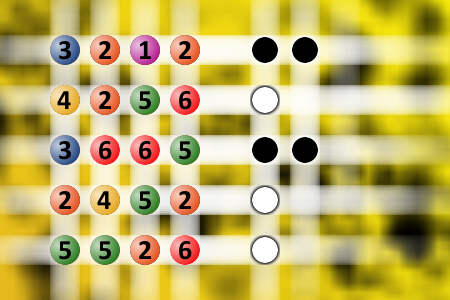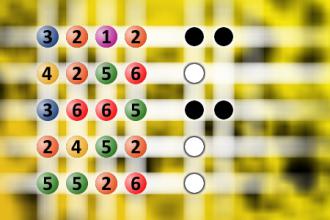What a winning combination?
The computer chose a secret code (sequence of 4 digits from 1 to 6). Your goal is to find that code. Black circles indicate the number of hits on the right spot. White circles indicate the number of hits on the wrong spot.Correct answers: 49
The first user who solved this task is Djordje Timotijevic.
#brainteasers #mastermind

New broom...
A woman was waiting in the check-out line at a shopping center. Her basket was filled with a mop and broom and other cleaning supplies. By her actions and deep sighs, it was obvious that she was in a hurry and not happy about the slowness of the line.
When the cashier called for yet another price check on a box of soap, the woman remarked, indignantly, "Well, at this rate, I'll be lucky to get out of here and home before Christmas!"
"Don't worry, Ma'am," replied the clerk. "With all that wind kicking up over there and that brand new broom you have in your basket, you'll be home in no time."

